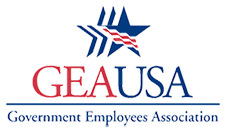Smart Money Moves for Military and Federal Employees: Tips for Financial Literacy Month
April is Financial Literacy Month, making it the perfect time for military personnel and federal employees to take a closer look at their financial well-being. Managing money wisely is crucial for long-term financial stability, and there are specific financial planning strategies that can help those in government and military service make the most of their income and benefits. Here are some smart money moves to consider this month and beyond.
1. Build and Maintain an Emergency Fund
Unexpected expenses can arise at any time, whether it's a medical emergency, car repair, or sudden relocation. Having an emergency fund with at least three to six months’ worth of living expenses can provide financial security. Military families often face unique challenges such as deployments and frequent moves, making an emergency savings account even more essential. Consider setting up an automatic transfer into a high-yield savings account to gradually build your fund.
2. Take Advantage of Government and Military Benefits
Federal employees and military personnel have access to a variety of financial benefits that can help them plan for the future. Here are some key programs:
- Thrift Savings Plan (TSP) (TSP.gov): The government’s retirement savings plan offers low-cost investment options and matching contributions for federal employees.
- Savings Deposit Program (SDP) (DFAS.mil): A special savings program for deployed service members that offers a high 10% annual return on deposits up to $10,000.
- Federal Employee Health Benefits (FEHB) Program (OPM.gov): Ensuring you choose the right health insurance plan can save you thousands in medical costs.
Understanding and leveraging these government benefits can help you build wealth and protect your financial future.
3. Optimize Your Retirement Savings
Whether you’re in the military or a federal agency, saving for retirement should be a top priority. Here are some steps to maximize your savings:
- Max out your TSP contributions: The Thrift Savings Plan allows tax-advantaged savings, and contributing enough to receive the full government match is a smart move.
- Consider a Roth IRA: A Roth IRA can provide tax-free withdrawals in retirement, complementing your TSP or military pension.
- Plan for military or federal pensions: If you're eligible for a military pension or federal retirement plan, understanding how it fits into your long-term financial strategy is crucial. Look into the Blended Retirement System (BRS) if you’re in the military to take advantage of matching contributions.
4. Reduce Debt and Improve Credit
High-interest debt can derail financial goals. To stay on track, do the following:
- Pay off credit card balances in full each month to avoid interest charges.
- Use the Servicemembers Civil Relief Act (SCRA) benefits to cap interest rates on pre-service debt.
- Check your credit report (AnnualCreditReport.com) annually for errors and ensure a strong credit score to qualify for better loan rates in the future.
5. Plan for Major Expenses
Military and government employees often deal with unique financial circumstances such as frequent relocations, transitioning out of service, or investing in higher education. Planning ahead for these big expenses can help prevent financial strain. Programs like the Post-9/11 GI Bill (VA.gov) can help cover education costs, while housing benefits such as VA loans provide access to homeownership with no down payment.
6. Seek Financial Guidance
Navigating personal finances can be complex, but there are many free resources available:
- Military OneSource (MilitaryOneSource.mil): Offers free financial counseling for service members.
- Federal Employee Assistance Programs (EAPs): Provide financial planning assistance.
- Certified Financial Planners (CFPs) (CFP.net): Seeking professional financial advice can help optimize your long-term financial strategy.
Final Thoughts
Financial Literacy Month is the perfect opportunity to reassess your financial goals and make informed money management decisions. By building an emergency fund, leveraging government benefits, optimizing retirement savings, managing debt, planning for expenses, and seeking financial guidance, military personnel and federal employees can set themselves up for long-term financial success.
Taking small steps now can lead to greater financial security in the future. Start today and make the most of the benefits and opportunities available to you!


